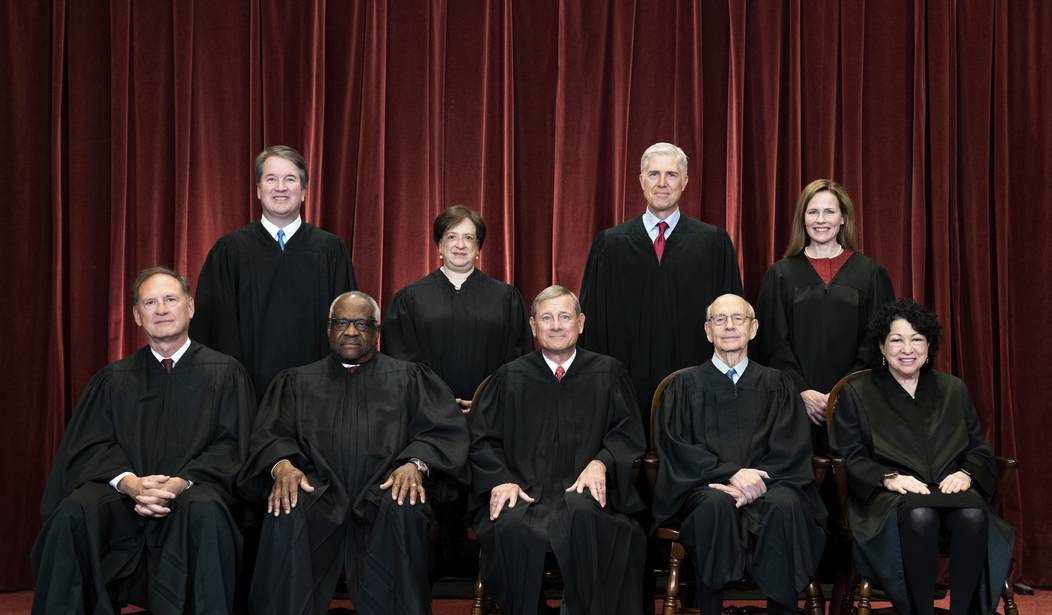The Supreme Court is kind of dominating Second Amendment news at the moment, and for understandable reasons. The case that will be before the Court next month will likely be the first Second Amendment decision since McDonald a decade ago. That one established that the Second Amendment applied to state and local governments as well, a key ruling that will likely play a much bigger factor in the future than many realize.
Now, the case coming before it involves concealed carry, and a lot of people are freaking out about it.
More than that, though, some are concerned that the Court isn’t going to pay attention to public opinion.
The Supreme Court is more conservative than it’s been in almost a century. Its new term begins today, and by next June, when the term ends, Americans might finally understand what that means. Public opinion of the court is already at a record low after the court allowed a strict abortion law to go into effect in Texas in early September. Now, the justices are preparing to hear the court’s first major gun rights case since 2010 as well as a case on the future of abortion in the U.S. Both cases could result in decisions that are far more extreme than most Americans want.
In the past, a desire to preserve the court’s apolitical reputation kept the justices from straying too far from public opinion. That could happen again — in fact, Chief Justice John Roberts has so far proven remarkably adept at producing decisions that protect the court’s reputation and that are often portrayed as more moderate and mainstream than they really are.
…
The justices are already entering the term with mixed reviews from the general public. A Marquette University Law School poll conducted in September found that only 49 percent of Americans approved of the court, down from 60 percent just a year earlier. A Gallup poll conducted in September found a similar drop: Only 40 percent of U.S. adults approved of the court, down from 53 percent a year earlier. According to Gallup, a majority (53 percent) of U.S. adults now disapprove of the way the court is handling its job.
In theory, the justices should have no reason to watch their polling numbers. Our system is actually designed that way: Federal judges have life tenure in part to insulate them from the vagaries of politics. But research suggests that the justices are influenced by what Americans think, at least to a certain extent. For example, several studies have found that the Supreme Court’s ideological tilt tracks with public opinion over time, which is unlikely to be coincidental. And Tom Clark, a political scientist at Emory University, found in a separate review of congressional bills that when Congress introduced more bills designed to curb the court, the justices struck down fewer laws. According to Clark, that suggests that the court saw the bills as a signal from Congress that they were going too far, even though the bills were unlikely to pass.
That’s exactly the point.
The Court’s popularity is neither here nor there. The Constitution fixed a lifetime appointment precisely so they could be immune to public opinion. The fact that they’ve been so concerned about it over the years is especially problematic.
All the Supreme Court should concern itself with is whether a given law is constitutional or not.
After all, public opinion can be wrong on any number of things. In fact, it has been. Once upon a time, eugenics was popular, for crying out loud. To say that public opinion can’t be wrong is to fly in the face of reality.
The Court’s independence was established so they could rule as needed without regard to keeping their jobs. Politicians have to consider public opinion. Judges shouldn’t.
Had the Founding Fathers wanted it otherwise, he’d have had the public elect the justices directly for a term much like the executive and legislative branches. Then public opinion would hold sway because justices would have to consider the impact of their decisions on their re-election chances.
They didn’t, though.
Instead, they decided the judiciary should receive lifetime appointments so they could operate independently of public opinion.
In other words, the Court potentially ignoring public opinion on a Second Amendment issue isn’t some bug in the system. It’s an explicit feature.
While a lot of people on the left are decrying that right about now, they’ll love it when it works in their favor. I’m at least consistent enough to respect it regardless of whether I like what they rule or not.








Join the conversation as a VIP Member